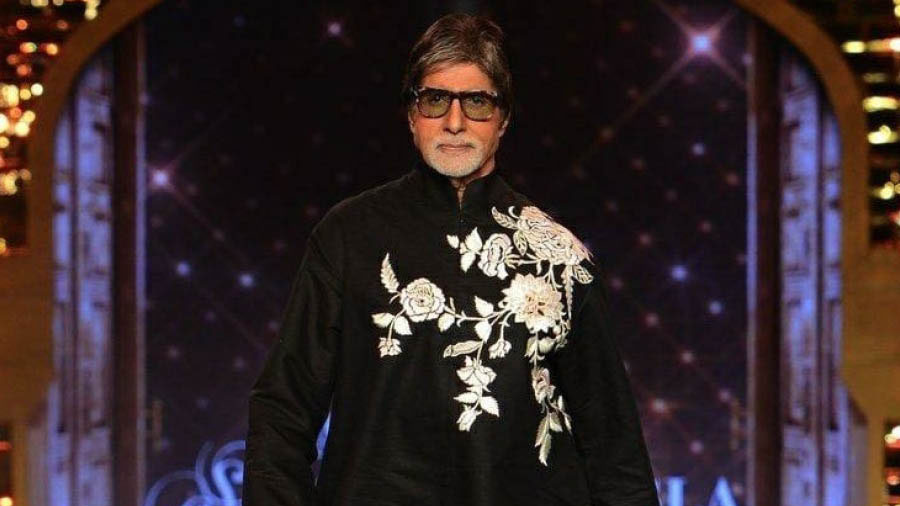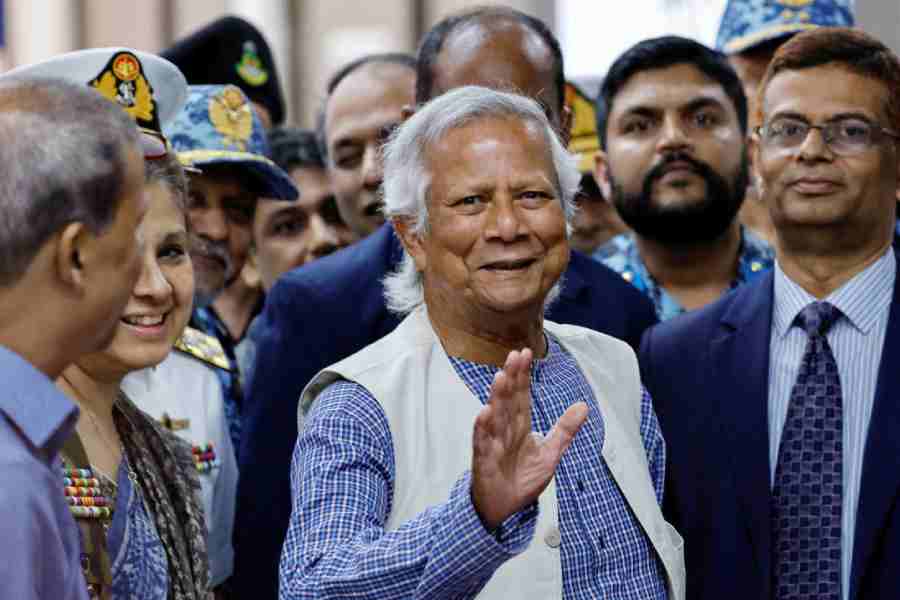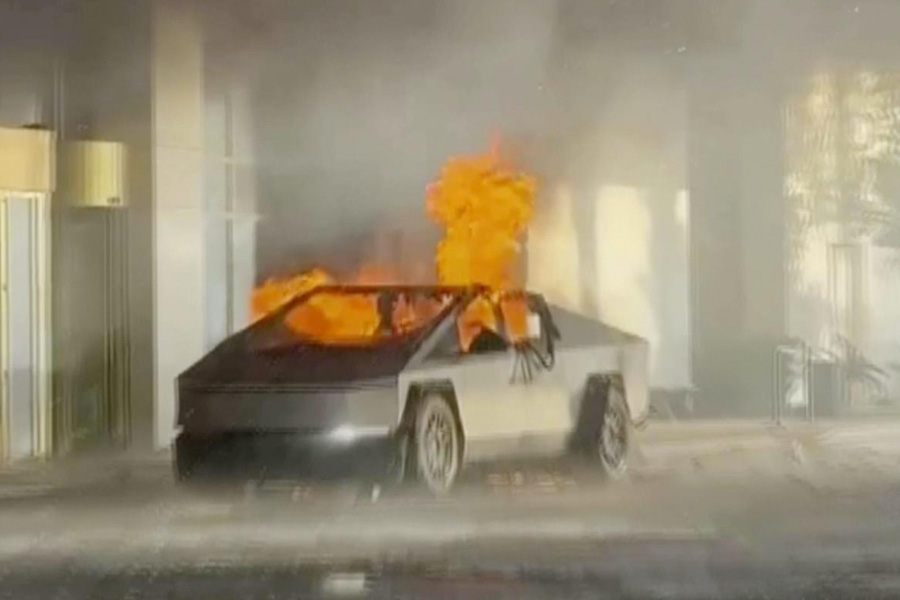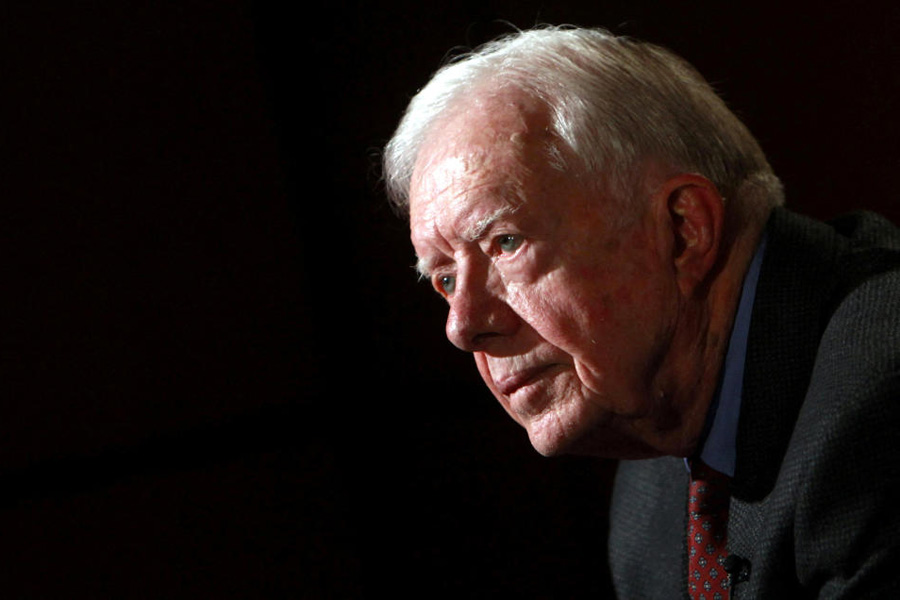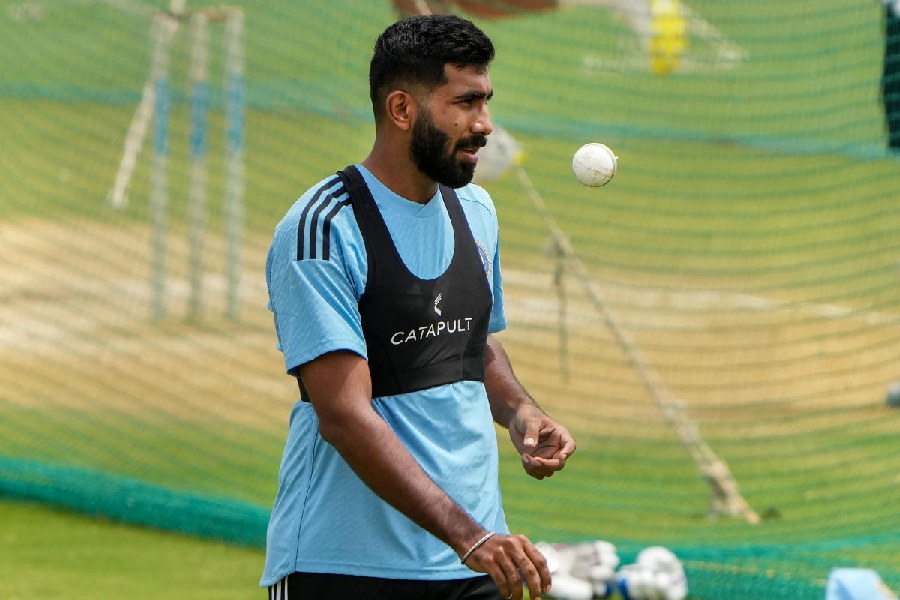I still cannot account for what I experienced that evening in February 1988. For four years now he had ruled every moment of my life. I just could not have enough of him. There was no film starring him that I had missed between 1984, when he gave up films for politics, and 1988, when he was returning to cinema after a disastrous political outing. And there were quite a few of these, with cinema halls releasing many of his old films during this period. There were no film magazines I had not bought if they contained even a column on him.
Yet, watching him in Shahenshah, with my parents and my grandmother (who had by then become totally enamoured of Bachchan) sitting next to me, there was a strange sense of unease, even disconnect, with what was unfolding before me. It didn’t help that at one point – I think it was the sequence in which Bachchan is disguised as a Parsi – my father blurted out: ‘Eita ki bhadamo korchhe.’ Now, the word ‘bhadamo’ is well-nigh impossible to render in English, but ‘horsing around’ is an approximation. Though the Bengali word is more pointedly derogatory. My brother, seated next to me, shook his head.
It seemed like it was only yesterday that we had muttered angrily under our breath all the way to Chanakya theatre when our father started out for Geraftaar at Paras and ended up showing us The Guns of Navarone. It seemed only the other day that we had thrilled to Sharaabi and Aakhri Raasta in the theatres. Even the vulgar overload of Mard had not dampened our spirits.
Shahenshah was supposed to be the Big B returning to cinema with a bang. The hype was unbelievable. For weeks, radio spots had been playing Kishore Kumar’s ‘Andheri raaton mein’ and if I am not mistaken the dialogue ‘Rishte mein toh hum…’. Trade magazines had gone to town with Bachchan’s costume in the film which was supposed to weigh a tonne. They could not have enough of the star, on a PR overdrive after the end of the longstanding media ban, talking about his experience donning the suit. There were reports that the star was so enamored of the film that he had watched the final cut seventy times. What more could a die-hard fan ask for?
Then the advance bookings opened. On the Monday before 12 February. It was mayhem at ticket windows. I remember visiting theatres just to watch the surging crowds. I had seen nothing like it. Lines snaked for a couple of miles. Fights broke out at the window. Advance booking for the first week closed in a day or two. On the first day, for the 12 o’ clock show, the craze had to be seen to be believed. The black-market rates at which tickets were being sold for the weekend were well beyond my means. But, boy, did it gladden my heart!
Then came the disappointment. The film left me cold. I could not figure out why. It had everything an Amitabh Bachchan fan could ask for. The dialogues, the fights, the comedy…. There was no accounting for what I felt. For a change, I even admitted to myself that my father had it spot-on with his comment. For the first time, I could not defend the star with my friends who trashed the film and him. Had I bought into the hype so much that there was no way the film would keep up to that? Debatable, because there were obviously people going mad over it.
The end of fandom
A few months down the line came Gangaa Jamunaa Saraswati. Even before I watched it, I had a sinking feeling when the gateman at Savitri, who had become a friend after my many visits to the theatre, said, ‘Sir, kyon paise barbad kar rahe ho? Maine zindagi mein aisi thaki hui film nahin dekhi hai.’ He was right. That Manmohan Desai and Amitabh Bachchan could dish out a film with a sequence where a man has sex with a woman to give her ‘jism ki garmi’ after she had fallen into an icy lake, and that my beloved star could be part of a scene like that was unfathomable. This was probably the first time I experienced the crowd tittering at a Bachchan sequence. And there was no sight sadder than Amitabh Bachchan carrying a dead crocodile on his shoulders as if saddled with the deadweight of the film. All those extra ‘a’s in the title couldn’t save the film from disaster.
August 1989 marked the lowest point in my Bachchan fandom till then. Two films, both from directors who had given him his biggest hits – Manmohan Desai and Prakash Mehra – released almost simultaneously. Both films, Toofan and Jaadugar, crashed at the box office and how. The films were not only bad, the star’s professionalism came into question too as both starred him as a magician. Even two magicians couldn’t work their magic at the box office. Bachchan pandered to the lowest common denominator with his appropriation of ‘Don’t worry, be happy’ in Toofan and ‘Padosan apni murgi ko’ in Jaadugar. But nothing could save the films.
I was happy when the star took another break with the debacle of these films. He returned in 1991 with Agneepath, and the disappointment continued. His voice modulation was brilliant and I was among the first audiences who actually watched the film in the theatres before the voice was redubbed. He was magnificent too – watch him in the restaurant scene, a rip-off of Al Pacino in Scarface – but the redubbing could not save the film. The problem lay in the film’s moth-eaten angry young man image which offered nothing new. If anything, the original guttural voice was a novelty. Once that was gone, the film was old wine in a new bottle.
Khuda Gawah: The first film I left midway
Then came the first Amitabh Bachchan film I actually left midway. Khuda Gawah. Again the hype was huge. Jaya Bachchan was on record saying, ‘Those who went crazy with Shahenshah will drool over Khuda Gawah – Amitabh will charm their pants off.’ I had been bitten too many times by now to lend credence to the endorsement. I had been warned too. My brother watched the film before I did. I remember coming across him as he was returning from the show, shaking his head at me from a distance. My heart sank. But I braved it anyway. The opening sequence was to die for. For the rest of the film I wished I were dead.
This was probably the first time that Bachchan’s ‘hain’ – which became the calling card for all those mimicking him – was so pronounced as to grate. The over-the-top performance (I can’t believe I used that phrase for a Bachchan act) and his breaking-the-fourth-wall address to ‘sarzameen-e-Hindustan’ left me wishing I could shut my ears. I left halfway through. I couldn’t take any more of the nonsensical script and the laughable melodrama. As a friend joked about the ‘oye khoche-s’ littering the dialogue: ‘Aami bishon khoche aachi.’ (The word ‘khoche’ in Bengali translates to ‘being peeved or angry’.) For a change I couldn’t help laughing with him and at Bachchan.
Disasters come in threes
But if I thought he was bad in Khuda Gawah, I had not bargained for Major Saab. His one-note performance, barking away at everyone, left me numb and wondering if this was the star who needed only his eyes or just four words ‘Tu toh gaya, Dhanna’ (Kala Patthar) to convey that he meant business.
After the triple disappointments of Shahenshah, Gangaa Jamunaa Saraswati and Toofan, and Agneepath, Aaj Ka Arjun and Khuda Gawah, I began to wonder if these came in threes as Major Saab was followed in quick succession by Mrityudaata and Bade Miyan Chhote Miyan. Or for that matter Mehul Kumar’s turkey Kohram which forms a triumvirate of tasteless shockers with K.C. Bokadia’s Lal Badshah and Veeru Devgan’s Hindustan Ki Kasam.
If in Mrityudaata he wanders in drunk to perform a surgery in another mind-numbing sequence and has to fall back on Daler Mehndi and ‘Na na na na na re’ for a box-office miracle (which eluded him), the master comic artist in him being overshadowed by Govinda in Bade Miyan Chhote Miyan almost drove me to tears.
By this time I had all but given up on the star. Two films finally sealed it forever for me. I knew that I would never be able to go back to what I felt for him once. One was Mohabbatein – the film that brought him back to box-office reckoning and played an important role in his rehabilitation as a bankable star. However, for me the film was a huge let-down and among the primary reasons was the end of the rebel in Bachchan’s character. Here was angry rebellious ‘Vijay’ metamorphosing into the angry tradition-loving, conservative, status-quoist Narayan Shankar who espouses ‘parampara, pratishtha, anushasan’. It broke my heart. The other is Ram Gopal Varma’s Aag, undoubtedly Bachchan’s nadir, Kaizad Gustad’s Boom notwithstanding. That he would even say yes to reprising Amjad Khan’s Gabbar Singh signalled the death of an actor for me.
The curse of growing up?
It’s not that he longer had terrific characters and films. Though I have never been a fan of Sarkar, there is no doubt that he was good in it. As he was in Vidhu Vinod Chopra’s Eklavya and Wazir. Dev and Khakee are standouts in this latter phase of Bachchan’s career. His performances in these harked back to the actor he was in his prime. And if Ram Gopal Varma’s Aag singed the actor in him irretrievably, the director also cast him at his silent best in Nishabd which I consider among his finest.
However, the ones that are popularly considered among his most accomplished acts in this phase often left me longing for the understatement characteristic of his peak period. I could never get over the feeling that in all these films – among them Black, Cheeni Kum, Paa, Pink, Badla, Piku – there’s an element of playing to the gallery, as if the actor is conscious of his own stature as an acting legend and that his directors are not strong enough to rein him in.
Maybe I am being too harsh. Maybe it is as simple as one growing up and losing the ability to revel in every experience that comes one’s way, ‘running out of’, in the words of Lang Leav, ‘feeling something new for the first time … and then spending the rest of your life turning them over in your head’. If that is so, I am the loser in no longer being in thrall to Amitabh Bachchan, and Rainer Rilke had it spot-on when he said in his poem ‘Fears’, ‘Growing older has served no purpose at all.’

